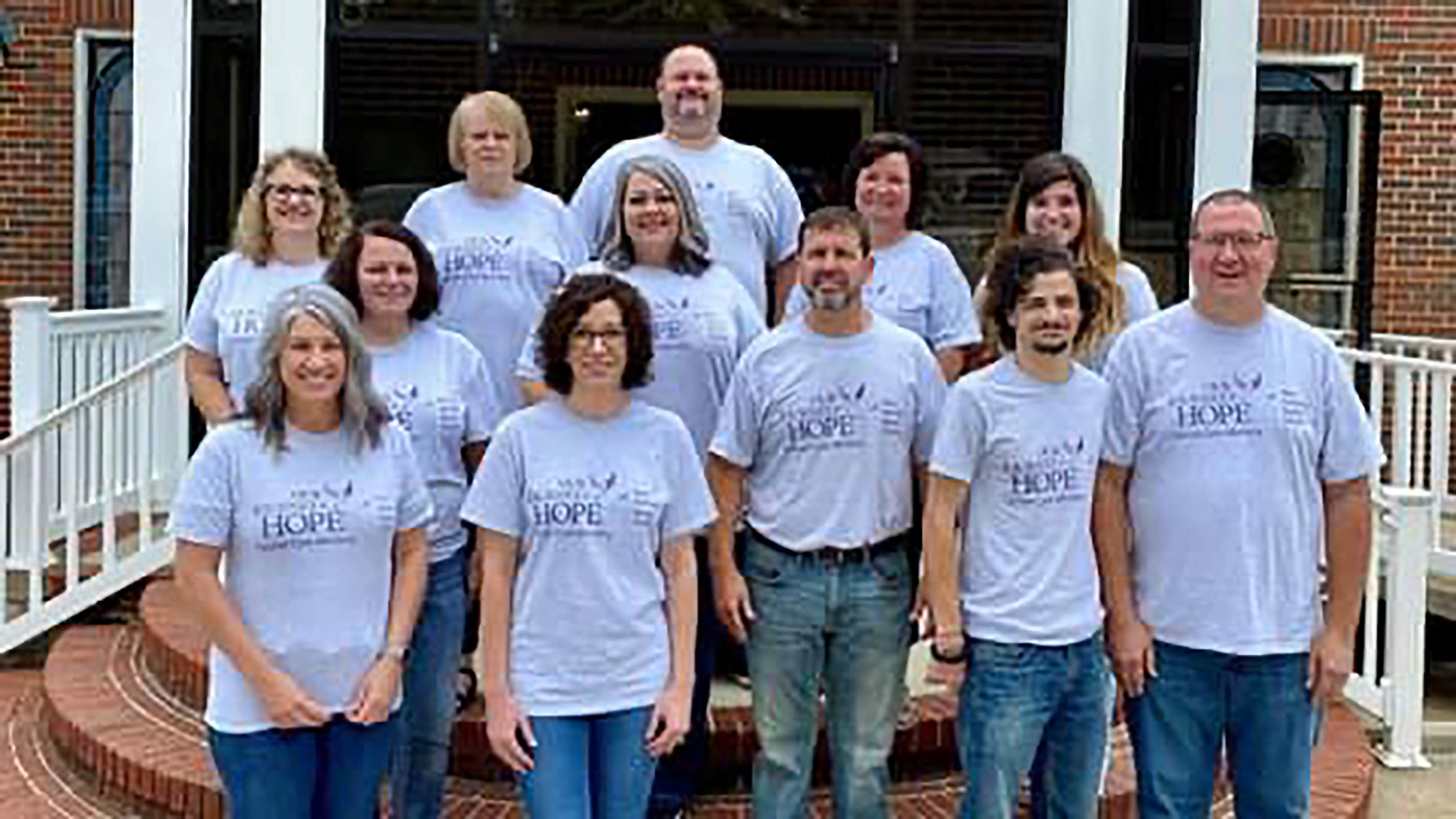Sandy was first diagnosed with cancer in 2017. A fear of the unknown was among her toughest battles in those early days, she said.
Church members offered Sandy support through calls, texts, grocery deliveries, rides to the doctor and companionship during her treatments. But the prayers of her Bible fellowship class meant the most during her fight with cancer.
“I felt every one of those prayers,” said Sandy, an Alabama Baptist. “They made all the difference.”
The American Cancer Society estimates that 1 in 3 people will be diagnosed with cancer, said Percy McCray Jr., director of faith-based programs for the Cancer Treatment Centers of America, during a recent TAB Talks podcast.
The church body is not immune. Almost every congregation prays for someone battling cancer.
Matthew 25 commands believers to tend the sick, noted McCray, but with cancer, that care should include not only praying and sending casseroles but also understanding how the disease operates.
Our Journey of Hope, a ministry sponsored by Cancer Centers of America, helps to inform and engage people with techniques they can use to encourage cancer patients and their families. The ministry provides free training and materials for churches seeking to start a cancer ministry. It also offers cancer education and weekly radio encouragement for patients and caregivers.
Cancer can be a private battle for some patients, and many are reluctant to share the news of a diagnosis with their church, said McCray, himself a cancer survivor.
But every community is touched by cancer, he said, and talking about the issue is important. Sharing the journey fosters hope as well as physical and mental health for patients and their caregivers.
In 2018, New Harmony Baptist Church, Heflin, began seeking ways to serve families touched by cancer.
Sensing that God had a specific plan but uncertain of the vision, church members asked Him for guidance as they also prayed for two church families experiencing cancer.
New Harmony members Patricia Turner and Misty Pointer connected with Cancer Centers of America and completed a two-day cancer ministry training workshop through Our Journey of Hope. As part of the training, the church was tasked with building a team of volunteers, and in October 2020, a 12-member team was certified for cancer ministry.
The coronavirus pandemic has limited some of what New Harmony’s team had hoped to do for cancer patients and caregivers. Even so, the church has printed team contact cards for distribution to families to let them know volunteers are available to help.
The congregation also prays for 25 local families who are currently battling cancer.
Meeting needs
Turner said the team works to meet whatever needs cancer families may experience, whether through sending cards, making phone calls and praying or by providing medical aids from the church’s store of donated equipment. The team has supplied a hospital bed and walker to one family and delivered Thanksgiving meals to others.
The main emphasis of cancer ministry, Turner said, is restoring hope to individuals who may view a cancer diagnosis as a death sentence. Meeting needs in practical ways communicates God’s love to hurting families, she added.
“We are called to bear each other’s burdens, and everybody needs that hope,” she said. “We hope for healing, but there’s hope after this. The [Our Journey of Hope] workshop taught us to explain that hope. Through Jesus, [cancer] is not a death sentence.”
Often, believers seeking to help will focus on the patient, McCray noted, but it’s important to support caregivers as well. That’s why Our Journey of Hope offers education on caring for the caregiver along with the patient.
Turner, who served as primary caregiver for a friend with cancer, was present when her friend accepted Jesus as Savior and later at her death. The experience, Turner said, helped her understand the individual needs of the caregiver.
“You’re not just a sitter,” she said. “It’s not just a job. You are part of that person’s journey. Caregivers are so vital to the well-being of the patient. They get tired too and emotionally involved.”
How to serve families struggling with cancer
Support is important to cancer patients, said Percy McCray Jr., director of faith-based programs for the Cancer Treatment Centers of America.
Here are some ways to help:
- Seek education to understand the nature of cancer and how to cultivate hope.
- Be available. Allow them to choose what works best.
- Meet needs on their terms. Offer to leave food and supplies on the porch if necessary.
- Be a helping hand. Run errands or volunteer to do cleaning or yardwork.
- Pray for them, their families and their caregivers. Pray for healing; few or no side effects from treatments; comfort, hope, peace, renewed faith and salvation for those who don’t know Jesus.
- Call or send cards and texts.
- Respect their privacy. Don’t share details of their condition without permission.
For information and free resources, visit ourjourneyofhope.com/ministry.
Hear more on McCray’s work at thealabamabaptist.org/podcast/cancer-care-ministry.






Share with others: